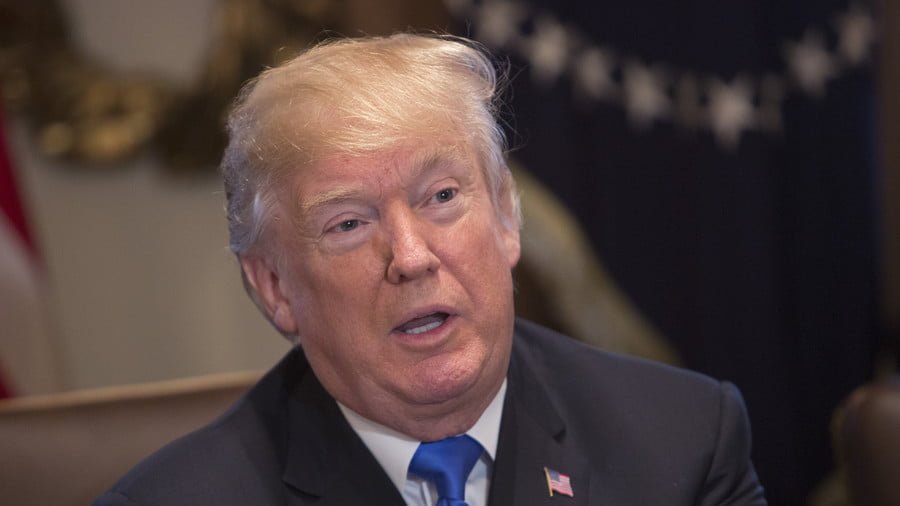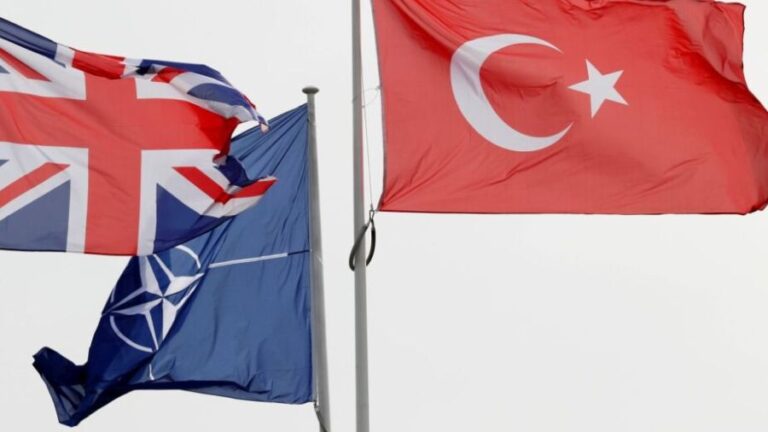What’s With All the Recent Ukrainian Coup Talk?
The ridiculous nature of the West’s latest claims suggests a desperation on the part of its anti-Russian ‘deep state’ faction to preemptively blame Moscow if any of this comes to pass. That’s precisely for the two naturally occurring reasons that were earlier explained: the opposition’s genuine desire to avert a catastrophic war with Russia that could risk Ukraine’s entire statehood, which the US’ prevailing anti-Chinese ‘deep state’ faction could support if they urgently had to stop their anti-Russian rivals’ dangerous proxy war plans.
The US-led West is frenetically spinning the narrative that Russia supposedly plans to carry out a coup in Ukraine. This is ironically the same country whose government the first-mentioned overthrew eight years ago, which set into motion the events that directly led to the undeclared US-provoked missile crisis in Europe. Building upon Ukrainian President Zelensky’s speculation from last November, they claim that Russia’s cultivating certain opposition members to install into power after an “invasion”.
Moscow and the concerned politicians of course deny these accusations, but what’s most interesting is how fervently they’re being propagated at this particular point in time by the US-led West. Ukrainian domestic politics is a circus of competing oligarchic factions sponsored by various foreign powers. It’s inherently unstable and resembles the systems in force in certain Global South countries. For these reasons, there’s always speculation about someone preparing to stab someone else in the back.
The weaponized information warfare narrative that’s circulating nowadays preemptively lays the blame for any such forthcoming scenario squarely on Russia’s shoulders though Moscow might not be culpable if anything of the sort comes to pass. Although the US-backed incumbents rule with an iron fist by charging opposition leaders with “treason” and criminalizing most forms of dissent, their power isn’t absolute. To the contrary, such heavy-handed means usually provoke quiet but growing resentment.
This isn’t a so-called “Russian propaganda” either but is literally a paraphrasing of the insight first shared by Color Revolution mastermind Gene Sharp, whose works about “From Dictatorship To Democracy”, “There Are Realistic Alternatives”, and “198 Methods Of Non-Violent Action” pioneered this trend of weaponized protest movements. These political technologies have since proliferated to the point where practically any actor can utilize them, though with varying degrees of success.
By the same strategic insight that the West itself uses for gauging the long-term political viability of foreign governments, Ukraine’s post-“Maidan” government is arguably built on sand since it’s done too much to divide its cosmopolitan society over the years and must therefore resort to increasingly repressive means in order to cling to power with foreign support. It’s therefore natural that certain factions might conspire to replace the authorities through myriad means like Color Revolutions or coups.
This political imperative – which might also speculatively involve elements of that country’s permanent military, intelligence, and diplomatic bureaucracies (“deep state”) – is all the more urgent considering the fact that the US’ anti-Russian “deep state” faction that patronizes Ukraine is aggressively pushing to provoke what they might dangerously have gambled could be a politically self-serving “manageable (proxy) conflict” with Russia.
To add even more strategic intrigue into the mix, this faction is rivals with the US’ prevailing anti-Chinese one that’s seriously exploring the possibility of respecting Russia’s security guarantee requests (even if initially only informally) so as to de-escalate tensions in Europe and subsequently enable the Pentagon to eventually redeploy more of its and its NATO ally’s forces from there to the Indo-Pacific in order to more aggressively “contain” China.
What objective observers are left with is the conclusion that regime change dynamics are naturally occurring within Ukraine at the present moment owing to two factors. First, opposition forces are interested in averting their country’s collapse if its current US-backed government submits to their patron’s anti-Russian “deep state” faction’s pressure to provoke a war with Russia. They already resent their authoritarian rulers but might feel pressed to act soon in order to stop an imminent war.
And second, the US’ prevailing anti-Chinese “deep state” faction might support such a move to an uncertain extent as a last-ditch effort to prevent their anti-Russian rivals from provoking the aforesaid proxy war that might ultimately prove not to be as “manageable” as they hope. Of course, there’s always the chance that Russia might also be plotting something similar, but that seems incredulous considering that it would have likely attempted this years ago if it had any chance to succeed.
Furthermore, the individuals that the West accused of colluding with Russia are either unpopular opposition figures or even those who are presently sanctioned by Russia itself. Others are political has-beens from the pre-“Maidan” government who don’t have any serious popularity or legitimacy in the eyes of most Ukrainians. The ridiculous nature of the West’s latest claims suggests a desperation on the part of its anti-Russian “deep state” faction to preemptively blame Moscow if any of this comes to pass.
That’s precisely for the two naturally occurring reasons that were earlier explained: the opposition’s genuine desire to avert a catastrophic war with Russia that could risk Ukraine’s entire statehood, which the US’ prevailing anti-Chinese “deep state” faction could support if they urgently had to stop their anti-Russian rivals’ dangerous proxy war plans. All eyes should therefore be on the West itself, not Russia, when speculating about the possibility of an impending Ukrainian coup.







